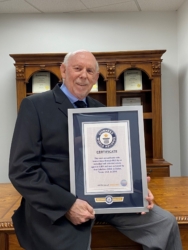Countless industries have been impacted by COVID-19, including the real estate sector. Both the sales side of the market and the rentals side have been disrupted by the novel coronavirus and the changes to daily life that have followed in its wake.
In light of this, realtors are doing all they can to adapt to the new normal, from digital brochures to virtual tours. Many realtors are also working hard to widen the pool of those to whom they can sell and/or rent homes. Could translation services be the key to enabling them to do so?
What are real estate translation services?
What is a translation service? It is a service that converts a document from one language (the source language) to another (the target language). The ‘document’ could be anything from a website to a video to a single tweet. Some translators provide generalized translation, while others focus on a specialist area of work, such as legal translation.
For the real estate sector, translation encompasses a wide range of activities, as well as a couple of specializations. Marketing translation and legal translation are two of the most sought after.
Marketing translators can help with everything from the translation of glossy brochures and website listings to promotional social media activity. Within the real estate sector, their focus is on the mindset of the buyer or renter, and on how they will benefit from living in a particular property or using a certain service. They keep this purpose firmly in mind throughout the translation process.
Legal translators are also particularly useful when it comes to real estate translation. Both renting and buying a home come with certain legal obligations. Realtors who can provide the necessary legal paperwork in the renter/buyer’s own language in order to make it easier for them to understand will be one step closer to closing the deal.
Uses of translation within the real estate sector
Realtors can use translation in a number of ways when it comes to making the impact of COVID-19 a thing of the past. Let’s consider that only 78% of those living in the US speak English as their main language. Obviously, linguistic makeup varies from state to state, but in average terms, a realtor who conducts their business only in English is missing out on over 20% of potential clients.
Nor is it just a case of investing in some quick Spanish translation. Yes, 13.5% of the population speaks Spanish natively, but there are also plenty of other languages in daily use in the US, from indigenous tongues to immigrant languages. Did you know, for example, that the US is home to more than 3.4 million people who speak Chinese as their main language at home? Or more than 2 million French speakers? Or 1.7 million Tagalog speakers?
For realtors who understand the linguistic makeup of their local area, translation services can broaden their appeal, ensuring they are well placed to do all they can to pick up the pace of transactions as quickly as possible.
How can translation services win over real estate investors?
In addition to those courting domestic buyers and renters, realtors have the opportunity to put professional translators to good use when it comes to engaging buyers overseas. Foreign direct investment in the US real estate, rental, and leasing sector stood at $22.1 billion in 2018.
How much do houses cost in America? This is a key question for many of those with money to invest in the US. The companies that engage those individuals and institutions in their own language are those that will likely benefit from the investment. They will at least stand a chance – something that realtors who don’t use translation services certainly won’t.
From villas in holiday hotspots to apartment blocks in major cities, there are plenty of properties in the US that draw in investors, and using human translation services is the way to do so. Why use human translation? Because relying on a computer for language translation is not yet a reliable process in terms of the translation’s accuracy. Human translators still beat machines when it comes to quality.
Every country is at a different stage of dealing with the COVID-19 pandemic. As such, while the real estate sector in the US may still be experiencing domestic disruption, there are plenty of overseas buyers out there whose countries have the virus under control and who are looking to invest. Using a proficient translator to reach out and connect with them could do much to support the sector to bounce back faster.
Of course, many investors aren’t looking for residential properties but for commercial real estate. Given that, as of April 3, the unlevered enterprise value of real estate assets was found to have fallen by 25% or more across almost all real estate sectors (and by 37% in the case of lodging, the hardest hit sector), there have certainly been some bargains with which to tempt foreign investors.
Finding the right translation services
Realtors looking to harness the power of professional translation services should prioritize finding a suitably experienced agency offering human-powered translations. That means not only finding a human translation service that covers the right combination of languages but one that has a history of providing real estate translation.
Due diligence is important; realtors should check online for any reviews of the translation agency they are considering using. Any mention of translation errors is sufficient reason to move on and find an alternative translation company. Language translation services can vary significantly in their experience and quality of service, so shopping around when looking for a translation quote is important.
The impact of COVID-19 on the real estate sector was swift and dramatic. Those realtors who have been fastest to adapt to the new normal will be the ones leading the country’s bounce back. Using professional human translators can play an important role in this process, ultimately helping the sector to get back to full strength faster.







